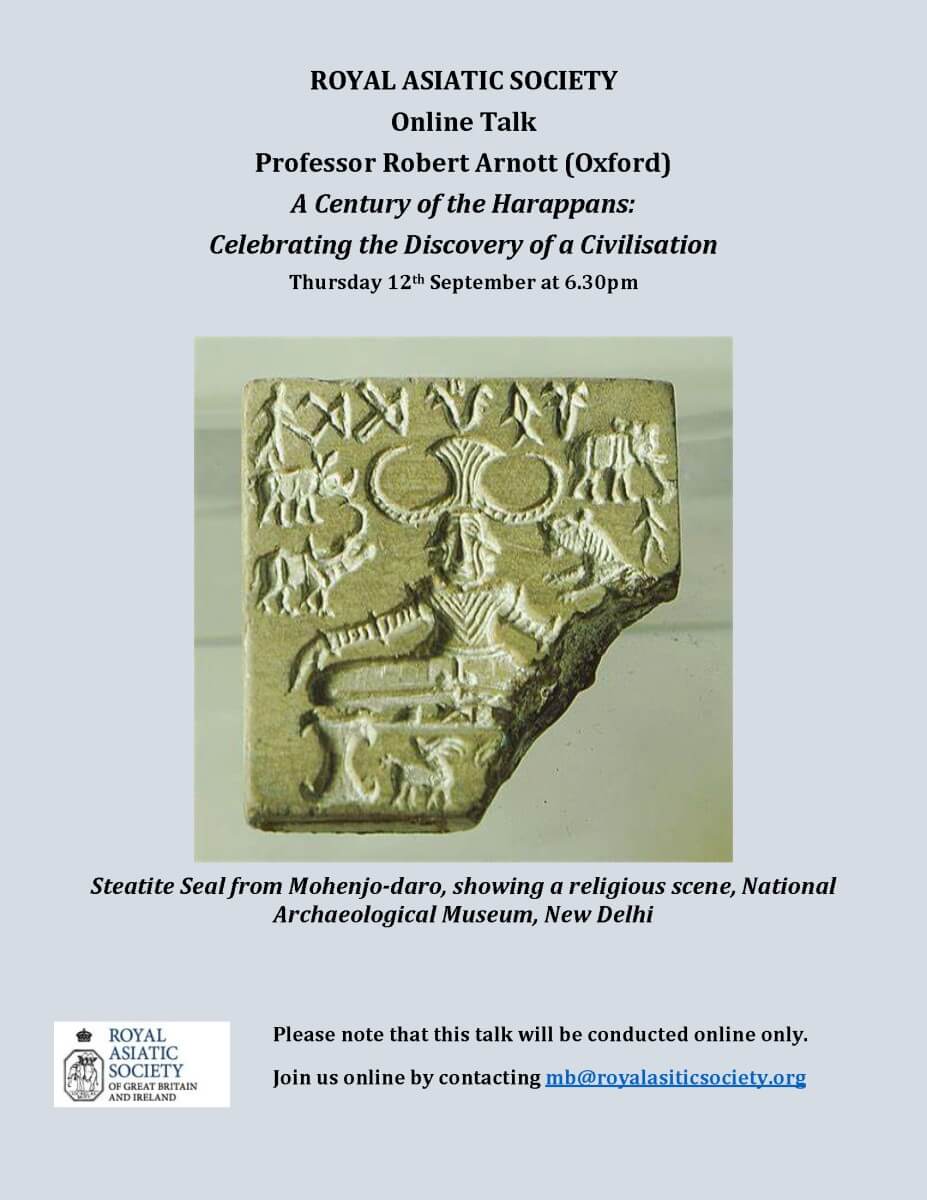
- This event has passed.
*Cancelled* Online Talk: Professor Robert Arnott (Oxford): A Century of the Harappans: Celebrating the Discovery of a Civilisation
*Please note that this event has been cancelled*

The existence of this complex urban society that was the Indus or Harappan Civilisation, remained unknown until the 20 September 1924. It was then that Sir John Marshall, Director-General of Archaeology in the Raj, announced its discovery in the pages of the Illustrated London News. He named it the Indus Civilisation, because the finds came from two sites in the Upper and Lower Indus Valley, Harappa, near Lahore in The Punjab and Mohenjo-daro in Sindh, six hundred kilometres to the south. This discovery was based on the fieldwork of the Indian archaeologists R. B. Daya Ram Sahni at Harappa in 1921 and from 1923 and Rakhal Das Banerjee and Madhu Sarup Vats at Mohenjo-daro from 1922. It was shortly to be dated to the middle and late third millennium and the early part of the second millennium BCE.
We are reminded of Marshall’s background. Following studying classics at King’s College, Cambridge and before his appointment in India, his archaeological career was with the British School at Athens in the early years of the discovery of Minoan Crete. He was strongly influenced by Sir Arthur Evans and his discoveries at Knossos, where he had worked unearthing of the Minoan Civilisation. He wanted to find his own.
Since a century ago, archaeological research both in modern India and Pakistan and even farther afield in Afghanistan and the Persian Gulf has been constantly enlarging our knowledge.
